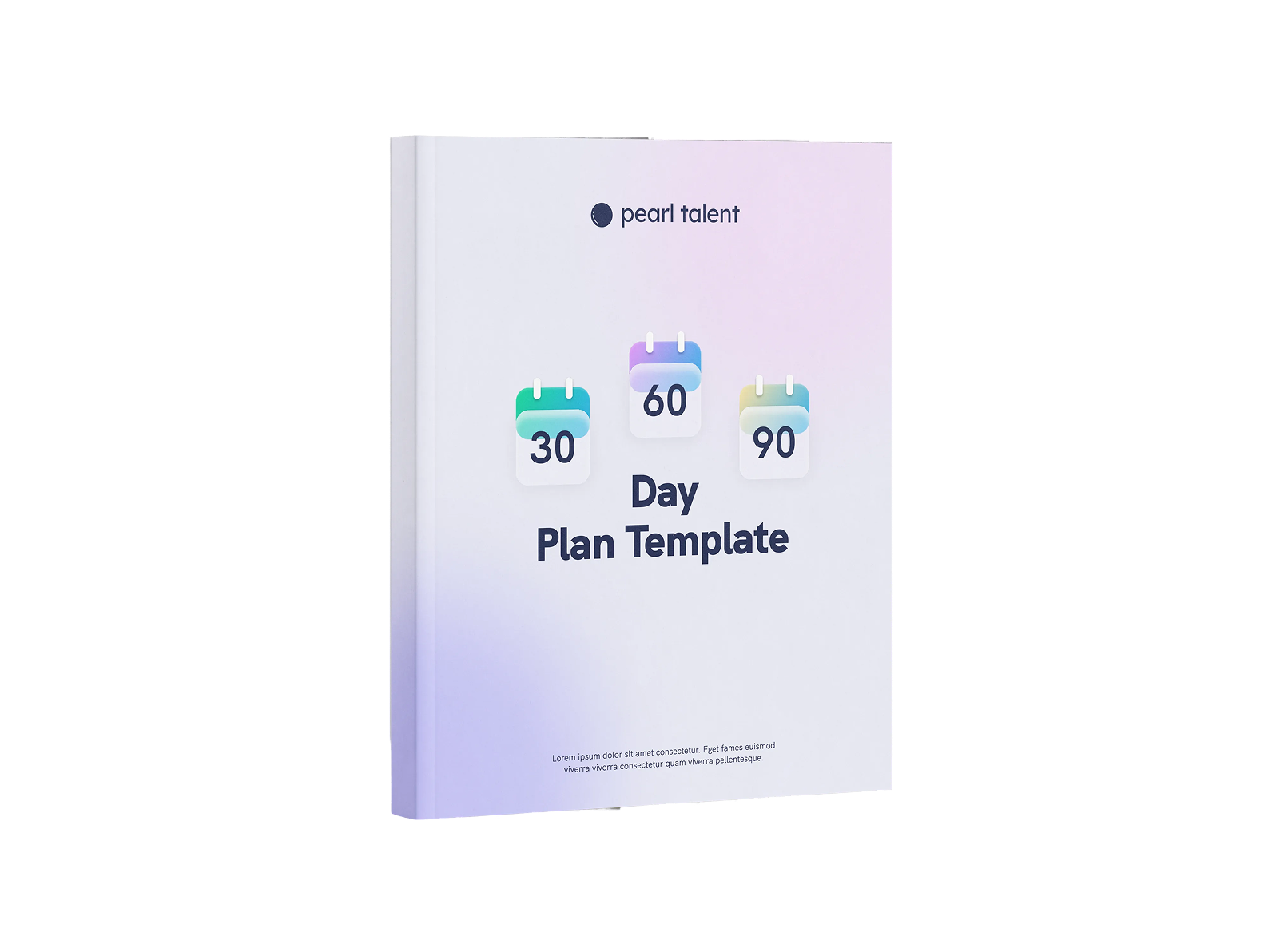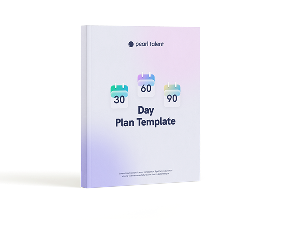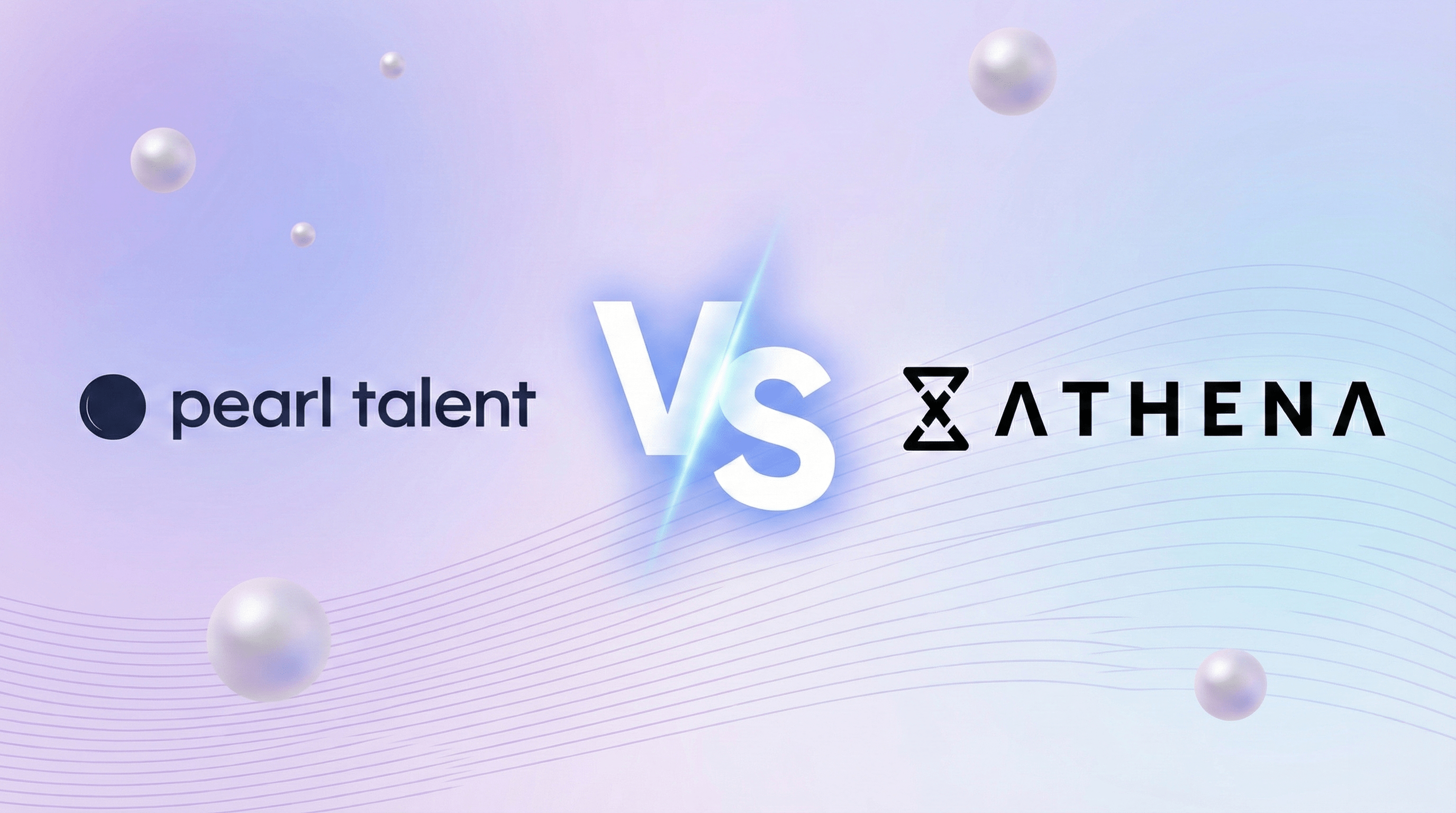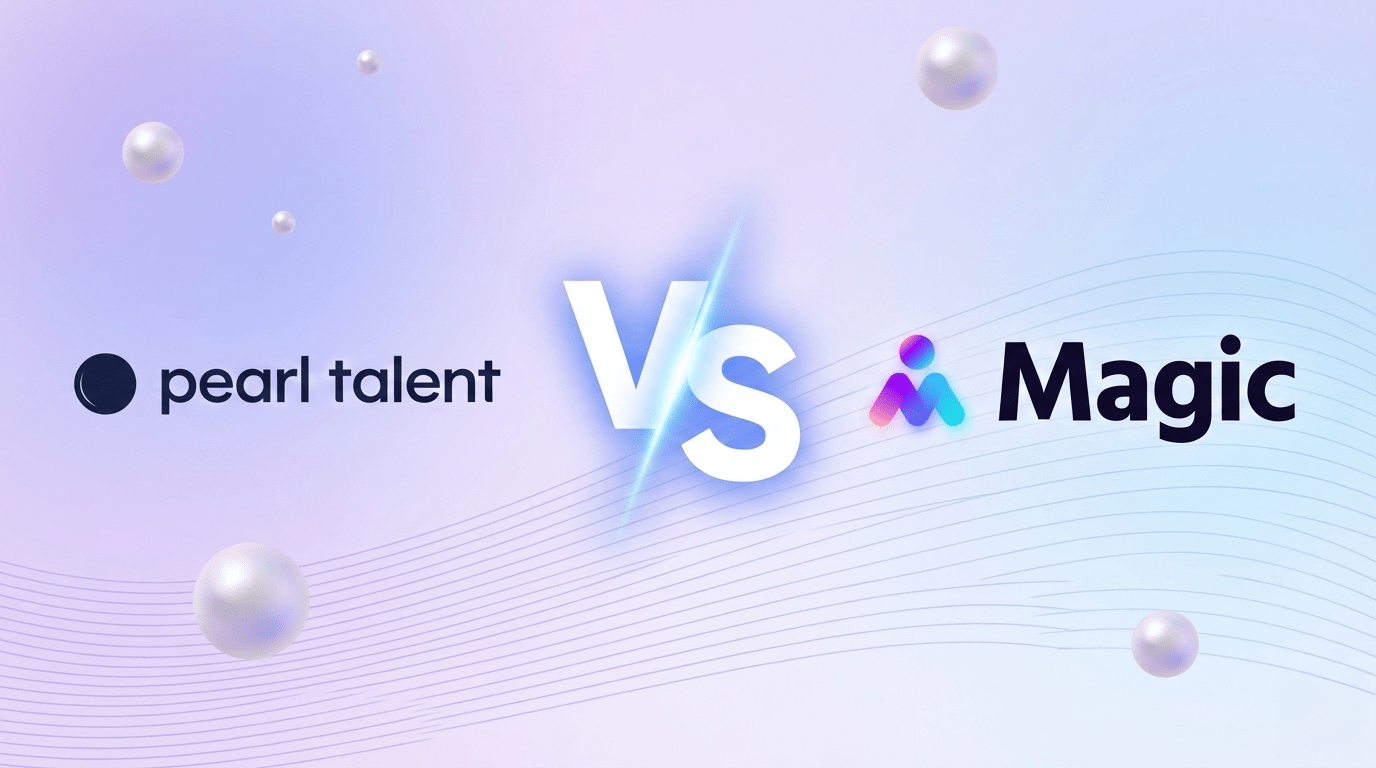Catena is now Pearl Talent! Same mission, new name.
Hiring the right people is essential for any business to thrive and grow. However, bringing in new employees involves more than just filling vacancies. Learning what is talent acquisition can help businesses create a more strategic approach to hiring. It focuses on long-term planning, attracting the right talent, and aligning with business goals, which differs from the more immediate recruitment process.
Pearl Talent connects US and EU businesses with top talent from the Philippines, South Africa, Colombia, Mexico, and Ecuador. With deep industry expertise, we understand the critical differences between talent acquisition partners and traditional recruiters. As strategic talent partners, we craft customized solutions to help companies avoid hiring the wrong overseas operators. Our approach ensures businesses build a reliable, skilled workforce that drives long-term growth and success.
Guided by our thorough talent acquisition outsourcing expertise, this guide explores the key responsibilities of talent acquisition professionals and recruiters. We’ll break down the critical differences between these roles, emphasizing their unique contributions to business success. By the end, you’ll know exactly what qualities to seek in the ideal talent acquisition partner.
Let's get started!
What Is Talent Acquisition?

Talent acquisition is the process of finding and hiring the right candidates for your company’s needs. It helps businesses attract the best candidates to achieve their goals. To better understand what is talent acquisition, it's essential to recognize that it’s about aligning the right skills with your company.
Core Elements of a Talent Acquisition
Talent acquisition involves key steps to help businesses find and hire the top candidates. It starts with workforce planning and forecasting, which help companies predict their future hiring needs and get ready ahead of time. Employer branding is another important part—it shows why the company is a great workplace and attracts talented candidates.
Building a talent pipeline is also crucial. This means having a pool of skilled passive candidates ready to fill hard-to-find roles when needed. Developing good relationships with candidates is just as important, as it builds trust and makes the hiring process smoother for everyone. Most importantly, talent acquisition should match the company’s goals and culture to ensure the new hires are the right fit for long-term success.
Talent Acquisition vs. Recruitment: Key Differences

Talent acquisition and recruitment are often used interchangeably, but they serve different purposes in a business. While both aim to fill job boards, talent acquisition takes a more strategic, long-term approach, whereas recruitment focuses on filling immediate vacancies. Let's explore the key differences between the two and how each contributes to a business's overall success.
1. Strategic Focus vs. Immediate Needs
Talent acquisition and recruitment aim to fill job positions, but they do so with different approaches. Talent acquisition aims to build a strong, skilled team member for the future. At the same time, recruitment is typically more urgent and reactive. Here's the difference between the two:
Talent Acquisition

- Proactive Approach: The talent acquisition process involves planning to meet future workforce needs. It focuses on building a talent pipeline so your company is ready to grow when the time comes.
- Aligning with Business Goals: Talent acquisition ensures new hires align with your company’s mission and long term objectives. It looks beyond the need to hire people who will contribute to future growth.
- Fostering Relationships: Building strong connections with potential candidates is a key part of the talent acquisition role. This helps businesses create a network of skilled professionals who can be tapped into when needed.
Recruitment

- Filling Immediate Needs: Recruitment, like recruiters for remote jobs, focuses on quickly filling open positions, often with less focus on long-term alignment. It’s more about meeting current demands rather than future workforce planning.
- Short-Term Focus: The main goal of recruitment is to fill vacancies quickly with suitable candidates. It doesn’t involve a long-term strategy or maintaining a talent pipeline.
- Limited Candidate Pool: Unlike talent acquisition, recruitment typically works with a smaller pool of candidates. It’s more about finding immediate fits, not building relationships for future needs.
The differences between talent acquisition function and recruitment help businesses decide which to use. Talent acquisition focuses on long-term growth, while recruitment solves immediate hiring problems. Depending on your company's needs, both strategies can be essential in achieving success.
2. Employer Branding
Employer branding is an essential aspect of an effective talent acquisition strategy. It is the process of building and maintaining a company's reputation to attract top talent with specific skills. The talent acquisition recruitment strategies go beyond just filling open roles. It focuses on how potential candidates perceive the company over time.
A strong employer brand highlights a company's culture, values, and the opportunities it offers, thereby attracting the right people who fit into this culture. On the other hand, recruitment usually places more focus on immediate needs thereof. It is done primarily by posting job offers, attracting a preliminary group of candidates.
While job postings are essential, recruitment never focuses on cultivating long-term relationships or any reputation with the company. Instead, recruiters usually interact with only those people when there is an opening, leaving less concentration on how this company would be perceived through the whole talent pool.
3. Role Scope

The scope of talent acquisition and recruitment varies because of the strategic focus and approach each takes. Talent acquisition is a much broader and longer process, not merely filling positions but aligning talent with the business's future goals. Recruitment, in most cases, is focused on immediately filling specific vacancies. Here is the difference of the two in terms of role scope:
Talent Acquisition
- Focus on Specialized Roles: Talent acquisition focuses on filling high-level and specialized positions, like leadership or technical roles. These roles often require careful planning and alignment with the company's long-term goals.
- Long-term relationships: Talent acquisition is about building long-term relationships with candidates for key positions. These professionals are typically nurtured over time, even before a specific role is available.
Recruitment
- Focus on Routine Positions: Recruitment generally focuses on filling routine, entry-level positions that require less specialized skills. Such positions are usually urgent and need to be filled quickly.
- Job-Specific Hiring: Recruitment generally involves finding candidates who meet the specific qualifications for the job at hand. It's more about matching candidates to the job description than looking at their potential for long-term growth within the company.
While talent acquisition focuses on leadership and specialized positions, recruitment targets more immediate entry-level needs. However, both play crucial roles. A talent acquisition specialist ensures that the key positions in the company are filled with the best quality talent that aligns with the company's culture and goals.
4. Candidate Relationship Management
Talent acquisition professionals focus on nurturing relationships even if the role is not needed in the immediate sense. They keep candidates informed about the company's happenings, job openings, and industry developments, fostering a positive candidate experience. This approach supports talent management by building a positive relationship with candidates through clear communication, helping to create trust, and ensuring candidates are well-prepared for the company and its culture when the right roles become available.
For instance, a talent acquisition partner may contact a software engineer long before the position is available. This continued interaction keeps the candidate interested and invested in the company, even if the job doesn't open immediately. On the other hand, recruitment tends to have more transactional interactions. A hiring manager often engages with candidates only when there's an immediate opening to fill, focusing on short-term hiring needs.
Why Talent Acquisition Is Crucial for Business Success

A business's success depends on attracting and retaining the right talent. Without a strong talent acquisition strategy, companies may struggle to build the teams needed for growth and innovation. Keep in mind these benefits of effective talent acquisition
1. Supports Long-Term Growth
Talent acquisition ensures companies are prepared for future growth by aligning staffing needs with strategic goals. For instance, if a tech company wants to expand its product line, it must hire developers with the right new skills well in advance.
Through job analysis and best practices, businesses can predict staffing requirements, create a talent pipeline, and attract the best talent with required skills while ensuring a strong cultural fit long before those roles are needed.
2. Provides a Competitive Edge
A well-executed talent acquisition strategy can give a significant competitive advantage. For example, a global marketing firm that invests in attracting top creative talents will outperform competitors by producing more innovative campaigns.
Companies that understand what talent acquisition means and focus on building a strong employer brand can attract qualified candidates. By hiring the best job seekers for the longest period, a company can maintain its competitive edge by always staying ahead of industry trends.
3. Enhances Adaptability
Talent acquisition is key in helping businesses remain adaptable, essential for long-term success. Take, for example, how a retail company quickly shifted to e-commerce during the pandemic by hiring digital marketing and logistics experts. The talent acquisition role, in this case, was crucial in ensuring the company had the right team to adapt to the new market conditions.
The right hire would allow businesses to change course quickly and efficiently if faced with an unforeseen challenge. A good talent acquisition strategy helps companies adapt quickly to changes in market dynamics, whether that means scaling up a talent acquisition team or bringing specialists on board for new initiatives.
How Pearl Talent Enhances Your Talent Acquisition Strategy
Pearl Talent is a talent acquisition company that helps businesses find and hire skilled remote workers. With a focus on building long-term teams, we make sure that companies get the right people for their unique needs. Here’s why Pearl Talent stands out in the talent acquisition process:
- Global Talent Pool: We connect businesses with skilled professionals from regions like the Philippines, South Africa, and Latin America.
- Top 1% Candidates: Only the top 1% of remote workers are selected, ensuring your business gets highly skilled and experienced professionals.
- Tailored Hiring Solutions: We understand your business goals and create custom strategies to find the perfect match.
- Seamless Remote Integration: With onboarding completed in less than 2 weeks, our candidates are ready to contribute quickly.
Pearl Talent is committed to helping you grow your team and business through practical, strategic hiring. Some of our top talents have even transitioned to full-time in-house employees, further proving the quality and lasting impact of our remote hires.
Key Takeaway
Exploring what is talent acquisition is essential for creating a workforce that drives long-term success. Unlike recruitment, talent acquisition focuses on building strategies that align with organizational goals and future needs. It ensures businesses attract top talent while fostering a culture of collaboration and innovation.
A strong talent acquisition strategy involves proactive planning, aligning hiring with industry trends, and maintaining a strong talent pipeline. This focus prepares organizations to overcome challenges, adapt to market changes, and seize new opportunities. By leveraging talent acquisition effectively, companies can maximize efficiency, reduce hiring risks, and achieve sustainable growth.
Are you ready to take your talent acquisition strategy to the next level? Pearl Talent offers a pool of skilled remote workers ready to help your business grow and succeed. By partnering with us, you can access top talent that aligns with your long-term goals and business needs. Let us help you build a strong, adaptable team that drives success through strategic talent acquisition.
Frequently Asked Questions
Originally Published
January 16, 2025




.svg)


















